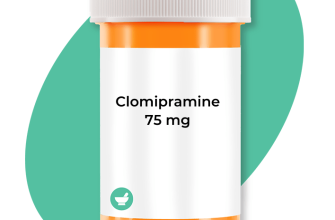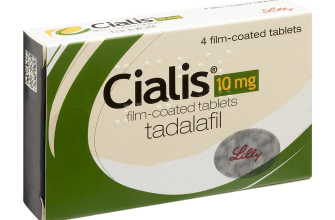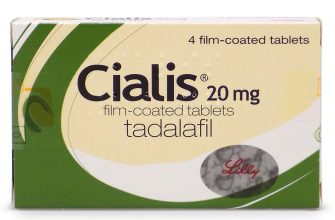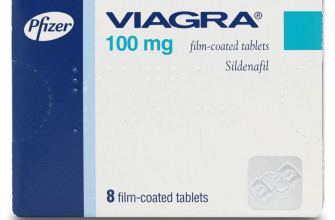Contact your GP; they’re your first point of access to NHS anxiety support. A simple appointment can unlock several pathways, including Cognitive Behavioural Therapy (CBT) – a proven method for managing anxiety. The waiting lists vary, but proactive engagement ensures you’re on the list.
Self-help resources are readily available through the NHS website. Explore their online guides and apps; many offer practical techniques like mindfulness exercises and breathing techniques you can use immediately. These tools provide immediate relief and complement professional care. Expect to dedicate around 15-20 minutes daily for optimal results.
Beyond CBT, the NHS offers various support groups. Connecting with others facing similar challenges fosters a sense of community and shared understanding. These groups often provide additional coping mechanisms and peer support–a valuable supplement to professional help. Check your local NHS trust website for available groups and their schedules.
Remember, recovery is a process, not a destination. Celebrate small victories and be patient with yourself. Consistency with recommended strategies–whether self-help techniques or professional therapy–is key. Don’t hesitate to adjust your approach if something isn’t working; open communication with your GP or therapist is crucial for adapting your treatment plan.
- Battling Anxiety: Your NHS Guide
- Understanding Anxiety and Its Symptoms
- NHS Services for Anxiety: Accessing Support
- Self-Help Strategies for Managing Anxiety
- Talking Therapies and Medications: What to Expect
- CBT: Practical Considerations
- Medication Options
- Combined Approach
- Long-Term Management and Preventing Relapse
Battling Anxiety: Your NHS Guide
Contact your GP. They can assess your anxiety and discuss treatment options, including talking therapies like Cognitive Behavioural Therapy (CBT) or counselling. Many services are available through the NHS.
Consider self-help resources. The NHS website offers numerous guides and apps to manage anxiety. Explore these options; they may provide immediate relief and coping strategies.
- Mindfulness exercises: Regular practice can reduce stress and promote relaxation. Many free guided meditations are available online.
- Relaxation techniques: Deep breathing, progressive muscle relaxation, and yoga are effective for managing anxiety symptoms.
- Regular exercise: Physical activity releases endorphins, improving mood and reducing anxiety levels. Aim for at least 30 minutes of moderate-intensity exercise most days of the week.
Improve your sleep hygiene. Prioritize consistent sleep patterns, create a relaxing bedtime routine, and ensure your bedroom is dark, quiet, and cool. Poor sleep exacerbates anxiety.
Manage stress through lifestyle changes. Identify stressors in your life and develop strategies to manage them. This might involve time management techniques, setting boundaries, or learning to say no.
- Identify triggers: Recognize situations, thoughts, or feelings that trigger your anxiety.
- Develop coping mechanisms: Practice techniques to manage anxiety when triggers arise.
- Seek support: Talk to friends, family, or a mental health professional about your struggles.
Explore local NHS mental health services. Your GP can refer you to specialist services, including anxiety management courses and support groups.
Remember, seeking help is a sign of strength, not weakness. Your mental health matters.
Understanding Anxiety and Its Symptoms
Anxiety manifests differently for everyone. Common physical symptoms include a racing heart, shortness of breath, trembling, sweating, and muscle tension. You might also experience digestive issues like nausea or diarrhoea.
Cognitive symptoms involve worrying excessively, experiencing difficulty concentrating, feeling overwhelmed, or having negative thoughts. These can range from mild unease to intense fear and panic.
Behavioural symptoms include avoidance of situations that trigger anxiety, restlessness, irritability, and sleep disturbances. For example, someone might avoid social gatherings or public transport.
Recognizing these symptoms is the first step. If you’re experiencing persistent anxiety, seeking professional help is key. The NHS offers various resources and support services. Don’t hesitate to contact your GP or a mental health professional.
Managing anxiety often involves a combination of strategies. These include therapy, such as Cognitive Behavioural Therapy (CBT), and sometimes medication. Lifestyle changes, such as regular exercise, a balanced diet, and sufficient sleep, can also make a significant difference.
Remember, you are not alone. Many people experience anxiety. Help is available, and recovery is possible. Take the first step towards feeling better today.
NHS Services for Anxiety: Accessing Support
Contact your GP – they’re your first point of contact. They can assess your anxiety, offer advice, and refer you to appropriate services.
Consider self-help resources: The NHS website provides numerous online resources, including guided exercises and information leaflets. These can be a valuable first step.
Explore Improving Access to Psychological Therapies (IAPT): This service offers talking therapies like Cognitive Behavioural Therapy (CBT) and counselling. Find your local IAPT service through your GP or online.
Utilize mental health helplines: Samaritans and Mind offer confidential support. They provide immediate help and can offer guidance on accessing NHS services.
Seek support groups: Connecting with others facing similar challenges can be incredibly helpful. Your GP or local mental health charity can provide information on local support groups.
Remember, seeking help is a sign of strength, not weakness. Don’t hesitate to reach out for the support you deserve.
Self-Help Strategies for Managing Anxiety
Practice regular physical activity. Aim for at least 150 minutes of moderate-intensity exercise or 75 minutes of vigorous-intensity exercise per week. This boosts endorphins, improving mood and reducing anxiety.
Prioritize sleep. Aim for 7-9 hours of quality sleep nightly. Establish a relaxing bedtime routine and create a sleep-conducive environment (dark, quiet, cool).
Mindfulness and meditation techniques can significantly reduce anxiety. Start with guided meditations, readily available through apps like Calm or Headspace. Even 5-10 minutes daily can make a difference.
Healthy eating contributes to mental well-being. Focus on a balanced diet rich in fruits, vegetables, and whole grains. Limit processed foods, caffeine, and alcohol.
Learn relaxation techniques. Deep breathing exercises, progressive muscle relaxation, and yoga can help manage physical symptoms of anxiety. Many free resources are available online.
Engage in enjoyable activities. Make time for hobbies and social interactions. Connecting with others and pursuing interests reduces stress and improves overall mood.
Consider keeping a journal. Writing down your thoughts and feelings can help process anxieties and identify triggers. This provides valuable self-awareness.
| Technique | Description | Benefits |
|---|---|---|
| Diaphragmatic Breathing | Slow, deep breaths from the diaphragm. | Reduces heart rate and blood pressure. |
| Progressive Muscle Relaxation | Systematically tensing and releasing muscle groups. | Reduces muscle tension associated with anxiety. |
| Cognitive Restructuring | Identifying and challenging negative thought patterns. | Promotes more realistic and balanced thinking. |
Seek professional support if self-help strategies are insufficient. A therapist can provide personalized guidance and support for managing anxiety.
Talking Therapies and Medications: What to Expect
Expect your GP to assess your anxiety and discuss treatment options. This might involve Cognitive Behavioural Therapy (CBT), a structured therapy focusing on changing unhelpful thought patterns and behaviours. You’ll likely attend weekly sessions with a therapist, actively participating in exercises and homework assignments between sessions. CBT typically lasts for several months.
CBT: Practical Considerations
Prepare for self-reflection and identifying triggers. Your therapist will guide you through techniques to manage anxiety symptoms, such as relaxation exercises and exposure therapy. Progress varies, but many experience significant improvements. Expect to track your progress and discuss challenges openly with your therapist.
Medication Options
Medication, such as Selective Serotonin Reuptake Inhibitors (SSRIs), can be helpful. Your doctor will explain how they work and potential side effects. They’ll monitor your response, adjusting dosage as needed. Remember that antidepressants aren’t a quick fix; you’ll need to take them consistently for several weeks before noticing significant effects. Always inform your doctor about any side effects you experience.
Combined Approach
Combining talking therapies with medication is often a very successful strategy. Your doctor and therapist will collaborate to develop a personalized plan addressing your specific needs. Expect regular reviews to monitor progress and adjust treatment accordingly. Open communication with your healthcare team is vital for positive outcomes.
Long-Term Management and Preventing Relapse
Maintain regular contact with your therapist or psychiatrist. Schedule follow-up appointments, even if you’re feeling well. This proactive approach helps identify potential issues early.
Continue practicing coping mechanisms learned in therapy. Journaling, mindfulness exercises, and relaxation techniques are invaluable tools for managing anxiety. Dedicate at least 15 minutes daily to these practices.
Identify your personal triggers and develop strategies to manage them. This could involve avoiding high-stress situations or developing specific coping strategies for predictable stressors.
Prioritize self-care. Ensure adequate sleep, eat nutritious meals, and engage in regular physical activity. These lifestyle choices significantly impact mental wellbeing.
Build a strong support network. Connect with friends, family, or support groups. Sharing your experiences can reduce feelings of isolation and provide valuable emotional support.
Consider a relapse prevention plan with your healthcare provider. This plan should outline warning signs of relapse and strategies to address them promptly and effectively.
Explore additional resources like online support forums or mindfulness apps. These tools offer supplemental support and can complement professional therapy.
Remember, managing anxiety is an ongoing process, not a destination. Be patient with yourself, celebrate your successes, and seek help immediately if you experience a setback.










